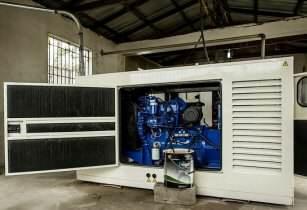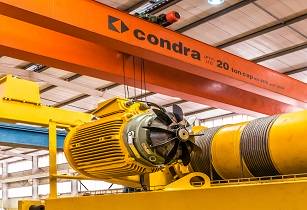Page 2 of 2
Continued growth in genset markets
The sales of products in the global generator market have been particularly strong in regions which have an unreliable electricity supply, such as countries in Africa and Asia. There have recently been a large number of power cuts across South Africa and Ghana, which have greatly affected both businesses and individuals operating in these countries.
South Africa has been particularly badly affected by power shortages in recent months, with South African electric public utility Eskom announcing plans for rolling blackouts in order to undertake repair work on several of their damaged generators.
The global generator market is seeing a rise in adverse weather conditions and new and improved generator technologies boost its growth prospects. As the energy infrastructure in developing countries remains poor on the whole it is expected that generators will be required for the foreseeable future.
The rise of natural gas gensets
Natural gas (NG) generator sets (gensets) are reciprocating internal combustion engines that are used worldwide for distributed power production. Despite a short-term slowdown due to volatility in the oil and gas market, the NG genset market is expected to show healthy growth during the next 10 years. As a source of emergency standby, prime, peaking, or continuous power, NG-fuelled gensets are poised for rapid growth, particularly in markets where inexpensive NG is widely available.
Annual natural gas (NG) genset installations are expected to reach 27.2GW by 2024 and generate US$146.8bn in cumulative revenue between 2015 and 2024, according to a report published by Navigant Research.
Gas gensets easily comply with environmental regulations by producing greater amounts of electricity through highly efficient, decentralised natural gas combined heat and power (CHP) systems. Gas property as a clean burning fuel coupled with genset advantages such as lower noise, quicker permit obtention, and reduced capital costs make gas gensets the ideal choice for end users across segments.
This is especially so in emerging countries like in East Africa, which do not have access to adequate reserves of gas and lack the necessary infrastructure to pipe gas from other regions. The widening demand and supply power gap will escalate gas gensets as a source of prime and continuous power. In this scenario, highly flexible generating units with fast response times can provide utilities with a flexible power generation infrastructure, allowing them to make the most of the high electricity prices during hours of peak demand.
Africa a big market
Research by PriceWaterhouseCoopers indicates that worldwide spending in infrastructure will double between now and 2020. This expenditure should grow at between six and seven per cent per year over the next ten years, with faster growth in sub-Saharan Africa estimated at an excess of 10 per cent per year.
To continue reading the rest of this article, please see July edition of African Review






































